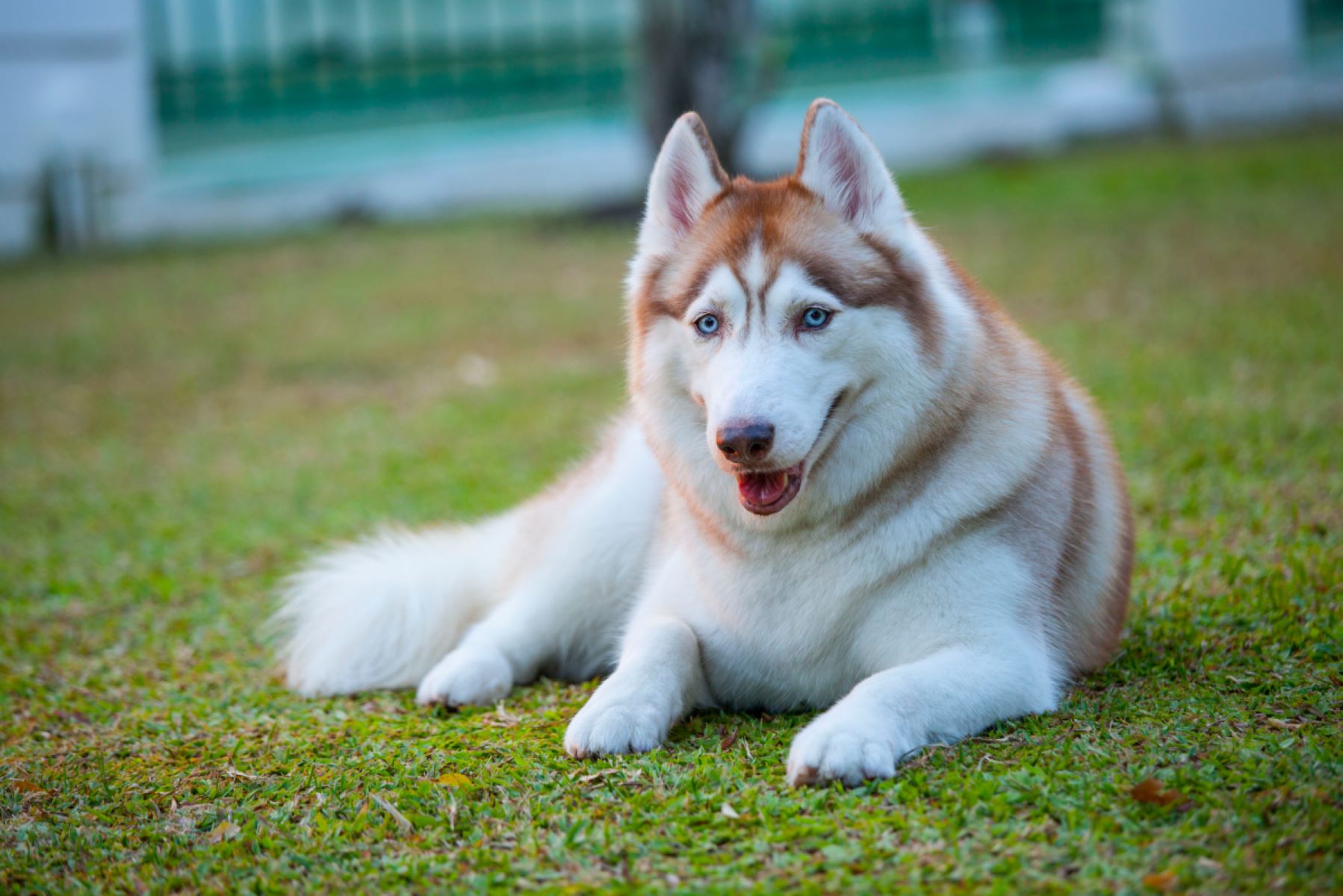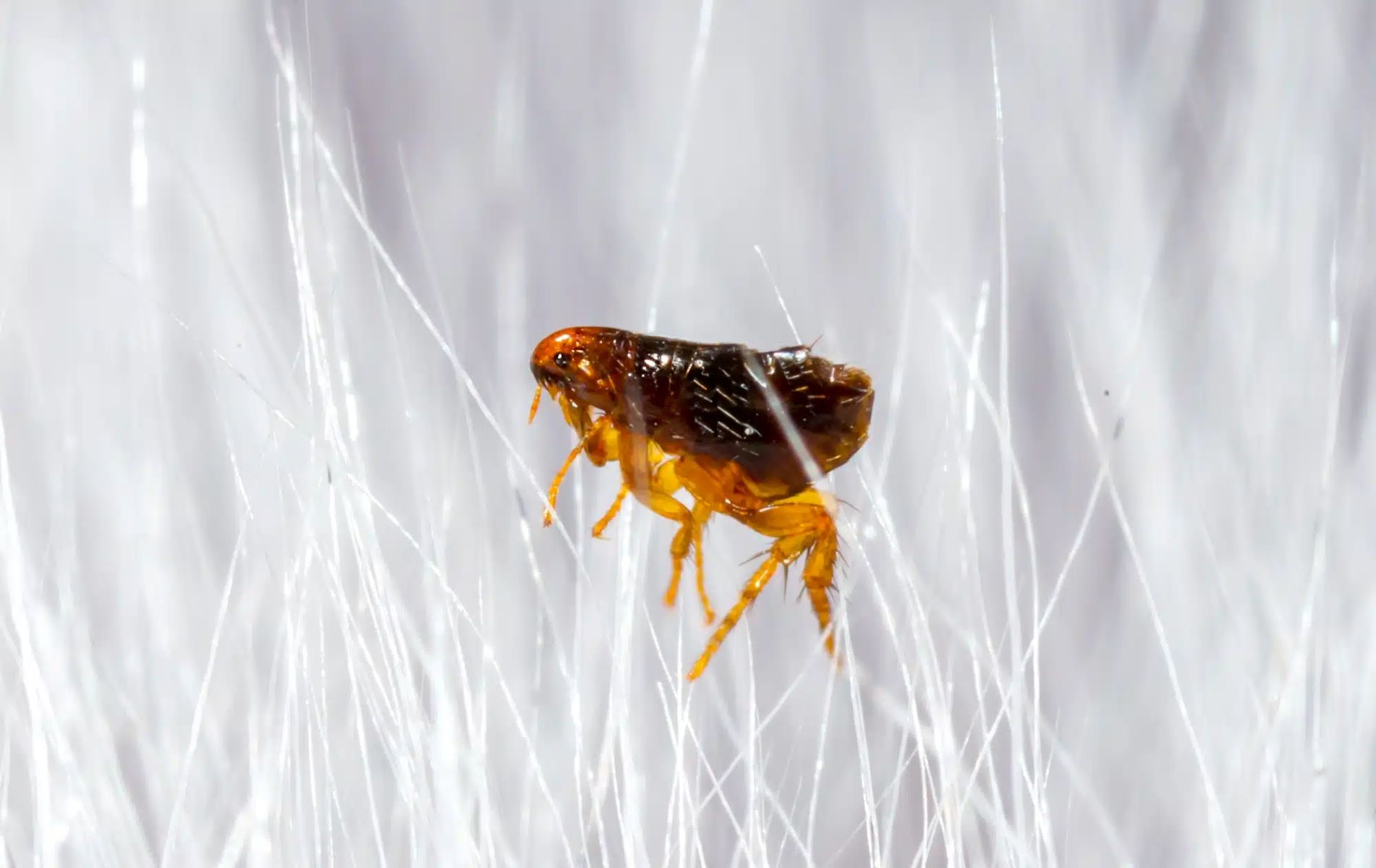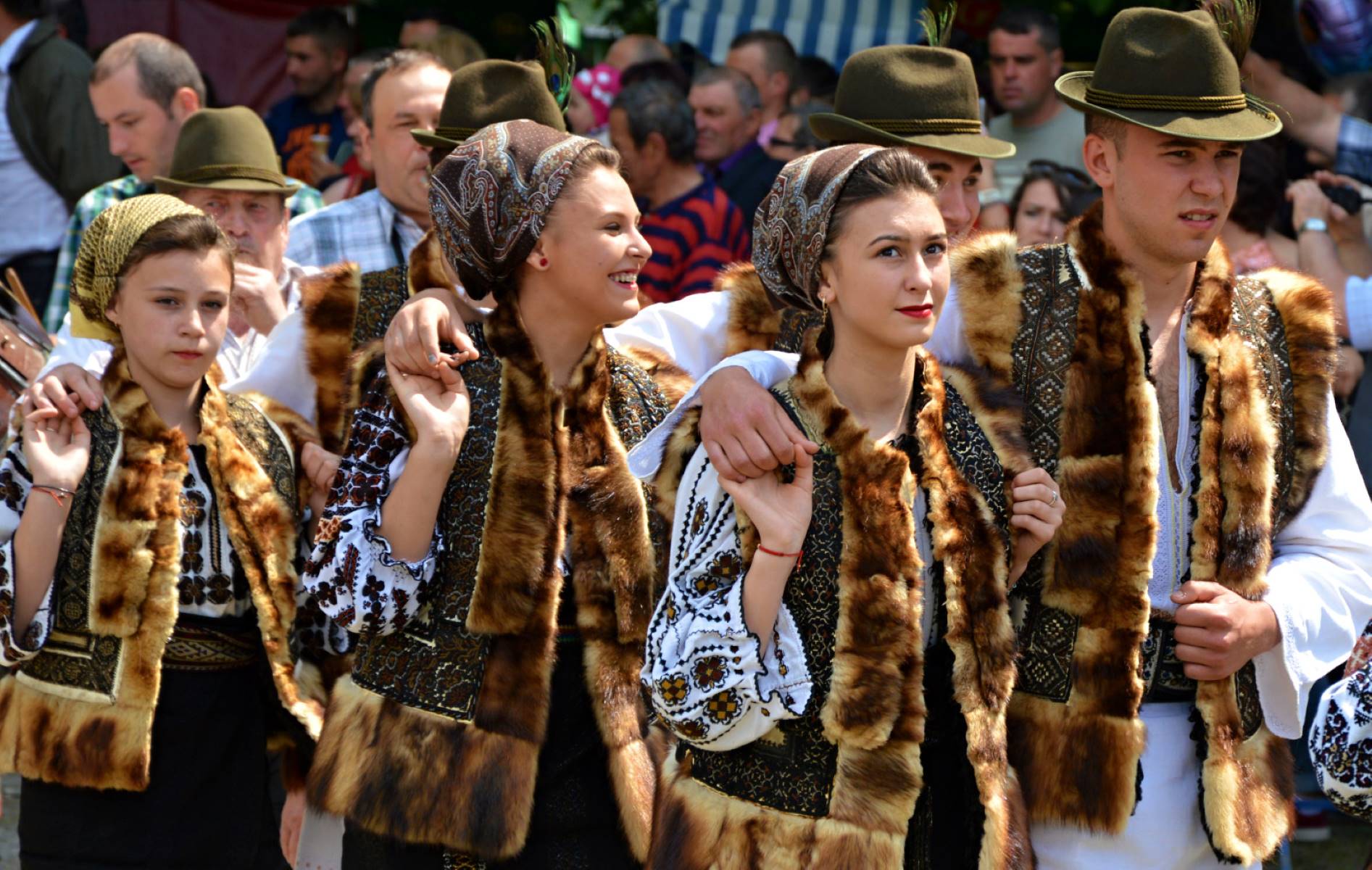Home>Lifestyle>The Surprising Truth About Mixed Huskies – Are They As Challenging As Purebreds?


Lifestyle
The Surprising Truth About Mixed Huskies – Are They As Challenging As Purebreds?
Published: January 23, 2024
Discover the surprising truth about mixed Huskies and whether they are as challenging as purebreds. Explore their lifestyle and find out more.
(Many of the links in this article redirect to a specific reviewed product. Your purchase of these products through affiliate links helps to generate commission for Regretless.com, at no extra cost. Learn more)
Table of Contents
Introduction
Mixed Huskies, often referred to as "designer dogs," are the delightful result of crossbreeding Siberian Huskies with other breeds, such as German Shepherds, Golden Retrievers, or Poodles. These unique canines inherit a fascinating blend of traits from their purebred parents, making them a popular choice for dog enthusiasts seeking a harmonious mix of characteristics.
As the popularity of mixed Huskies continues to rise, it's essential to explore the nuances of these captivating companions. Understanding their unique qualities, temperament, and care requirements is crucial for anyone considering adding a mixed Husky to their family. In this comprehensive guide, we will delve into the surprising truth about mixed Huskies, shedding light on their distinctive nature and debunking common misconceptions.
Join us as we embark on an enlightening journey to unravel the mystique surrounding mixed Huskies, uncovering the joys and challenges of welcoming these enchanting hybrids into our lives.
Understanding Mixed Huskies
Mixed Huskies, also known as hybrid Huskies, are the product of purposeful crossbreeding between Siberian Huskies and other purebred dogs. This intentional pairing results in a captivating blend of physical and behavioral traits, creating a unique and diverse lineage that sets them apart from their purebred counterparts.
One of the most intriguing aspects of mixed Huskies is their striking physical appearance. These hybrids often display a fascinating combination of features inherited from both parent breeds, resulting in a diverse array of coat colors, patterns, and textures. From the iconic blue-eyed charm of the Siberian Husky to the distinct characteristics of the secondary breed, mixed Huskies showcase a remarkable spectrum of visual appeal.
In addition to their captivating appearance, mixed Huskies inherit a blend of temperamental traits that contribute to their individuality. While the Siberian Husky is renowned for its independent and spirited nature, the introduction of another breed into the mix can influence the hybrid's behavior in unexpected ways. This fusion of temperaments gives rise to a wide range of personalities, from outgoing and affectionate to reserved and introspective, making each mixed Husky a fascinating and enigmatic companion.
Furthermore, the health considerations associated with mixed Huskies warrant careful attention. As with any crossbred dog, these hybrids may inherit a combination of genetic predispositions from their purebred parents. It is essential for prospective owners to be aware of potential health issues that may manifest in mixed Huskies, ensuring proactive measures are in place to safeguard their well-being.
In essence, understanding mixed Huskies encompasses appreciating their distinctive genetic makeup, which influences their physical attributes, temperament, and potential health considerations. Embracing the diversity and individuality of these captivating hybrids is key to forming a deep and meaningful connection with these remarkable canine companions.
Temperament and Behavior
The temperament and behavior of mixed Huskies are a captivating fusion of traits inherited from their Siberian Husky lineage and the characteristics of the secondary breed. This unique blend gives rise to a diverse spectrum of personalities, making each mixed Husky a fascinating and enigmatic companion.
One of the defining traits of the Siberian Husky is their independent and spirited nature. This breed is known for its intelligence, strong-willed demeanor, and a penchant for engaging in activities that stimulate both their physical and mental faculties. When these traits intertwine with those of the secondary breed, the resulting temperament can vary widely. Some mixed Huskies may exhibit a strong inclination towards independence, while others may display a more affable and sociable disposition.
Additionally, the energy levels and exercise requirements of mixed Huskies are influenced by their lineage. Siberian Huskies are renowned for their high energy levels and innate desire to remain active. When coupled with the traits of the secondary breed, this can lead to a wide range of exercise needs. Some mixed Huskies may thrive on rigorous physical activities, such as running or hiking, while others may require moderate exercise tailored to their unique blend of traits.
Moreover, the behavioral patterns of mixed Huskies often reflect a combination of instincts inherited from both parent breeds. For example, the Siberian Husky's strong prey drive and inclination to roam may manifest in certain hybrids, necessitating careful training and management to ensure their safety and well-being. Understanding and addressing these inherent tendencies is crucial for fostering a harmonious relationship with mixed Huskies.
Socialization plays a pivotal role in shaping the behavior of mixed Huskies. Introducing them to diverse environments, experiences, and social interactions from an early age can help mitigate potential behavioral issues and promote well-rounded development. This process allows mixed Huskies to acclimate to various stimuli and form positive associations, contributing to their overall sociability and adaptability.
In essence, the temperament and behavior of mixed Huskies are a captivating amalgamation of traits that demand a nuanced and individualized approach. Embracing the diversity and complexity of their personalities enriches the bond between humans and these remarkable hybrid companions. Understanding their unique temperament and behavior paves the way for a fulfilling and mutually rewarding companionship with mixed Huskies.
Training and Socialization
Training and socialization play pivotal roles in shaping the behavior and well-being of mixed Huskies. These aspects are essential for fostering a harmonious relationship and ensuring that these captivating hybrids thrive in diverse environments.
Training:
Training mixed Huskies requires a patient and consistent approach that takes into account their unique blend of traits inherited from both parent breeds. Leveraging positive reinforcement techniques, such as rewards and praise, can be highly effective in encouraging desirable behaviors and fostering a strong bond between the dog and its human companions.
Given the Siberian Husky's independent nature, training these hybrids may present challenges, particularly in terms of obedience and recall. However, with patience, perseverance, and a deep understanding of their individual temperament, mixed Huskies can excel in various training endeavors. It's important to tailor training methods to suit the specific needs and inclinations of each hybrid, recognizing that their responses may vary based on their lineage and personality.
Consistent training routines, coupled with mental stimulation and interactive activities, are integral to keeping mixed Huskies engaged and mentally sharp. Incorporating agility exercises, puzzle toys, and obedience training not only channels their energy in productive ways but also strengthens the bond between the dog and its human family.
Read more: The Surprising Truth About Sweating In Suits
Socialization:
Socialization is a critical aspect of raising mixed Huskies to be well-adjusted and confident companions. Early and ongoing exposure to diverse stimuli, including different people, animals, environments, and experiences, is instrumental in shaping their social behavior and tempering any potential anxieties or insecurities.
Introducing mixed Huskies to various social settings, such as dog parks, pet-friendly events, and structured playdates, fosters positive interactions and helps them develop essential social skills. This exposure allows them to acclimate to new situations and individuals, promoting a balanced and adaptable demeanor.
Moreover, socialization aids in mitigating potential behavioral issues, such as aggression or fear-based reactions, by instilling a sense of confidence and ease in diverse scenarios. It also contributes to the overall well-being of mixed Huskies, nurturing their sociability and enriching their lives with meaningful human and canine connections.
In essence, comprehensive training and socialization are integral components of nurturing the full potential of mixed Huskies. By embracing their unique traits and tailoring training and socialization efforts to their individual needs, owners can cultivate a strong and mutually rewarding bond with these remarkable hybrid companions.
Health Considerations
Ensuring the well-being of mixed Huskies involves a thorough understanding of the potential health considerations associated with these captivating hybrids. As with any crossbred dog, mixed Huskies may inherit a combination of genetic predispositions from their purebred parents. It is essential for prospective owners to be aware of these factors and take proactive measures to safeguard the health of their cherished companions.
One of the primary health considerations for mixed Huskies pertains to genetic predispositions inherited from the Siberian Husky lineage. This breed is known to be susceptible to certain health conditions, including hip dysplasia, progressive retinal atrophy (PRA), and juvenile cataracts. It is crucial for owners to be vigilant and proactive in monitoring the ocular and orthopedic health of their mixed Huskies, seeking regular veterinary assessments to detect and address potential issues early on.
Additionally, the introduction of a secondary breed into the mix may bring forth a distinct set of health considerations for mixed Huskies. Depending on the genetic predispositions of the secondary breed, these hybrids may be prone to specific ailments such as allergies, skin conditions, or breed-specific health issues. Understanding the potential health risks associated with the secondary breed is vital for implementing preventive care and early intervention when necessary.
Furthermore, maintaining a balanced and nutritious diet is paramount for the overall health and vitality of mixed Huskies. A well-rounded diet tailored to their specific needs, taking into account their energy levels, size, and potential dietary sensitivities, contributes to their long-term well-being. Regular exercise, mental stimulation, and preventive healthcare, including vaccinations, parasite control, and dental care, are integral components of a comprehensive wellness regimen for mixed Huskies.
Proactive healthcare, including routine veterinary check-ups, preventive screenings, and prompt attention to any signs of discomfort or irregularities, is essential for ensuring the longevity and quality of life of mixed Huskies. By staying attuned to their unique health considerations and addressing potential issues with diligence and care, owners can provide their beloved mixed Huskies with the best possible foundation for a healthy and fulfilling life.
In essence, a proactive and informed approach to health considerations is pivotal in safeguarding the well-being of mixed Huskies. By remaining vigilant, attentive, and responsive to their unique health needs, owners can nurture a thriving and resilient foundation for these remarkable hybrid companions.
Conclusion
In conclusion, the realm of mixed Huskies unveils a captivating tapestry of diversity, individuality, and surprises. These enchanting hybrids, born from the intentional fusion of Siberian Huskies with other purebred dogs, embody a harmonious blend of physical traits, temperamental nuances, and health considerations. Embracing the unique qualities of mixed Huskies is an enriching journey that offers a wealth of joy, companionship, and fulfillment for dog enthusiasts and their families.
From their striking physical appearance, showcasing a mesmerizing fusion of features inherited from their purebred parents, to their diverse spectrum of temperamental traits, mixed Huskies captivate the hearts and minds of those fortunate enough to welcome them into their lives. The interplay of the Siberian Husky's spirited independence with the distinct characteristics of the secondary breed gives rise to a myriad of captivating personalities, each with its own charm and allure.
Training and socializing mixed Huskies require a nuanced and individualized approach, one that celebrates their unique blend of traits and fosters a strong bond based on understanding and mutual respect. By leveraging positive reinforcement techniques and providing comprehensive socialization experiences, owners can nurture well-rounded and confident mixed Huskies, paving the way for a harmonious coexistence and a deeply rewarding companionship.
Health considerations for mixed Huskies necessitate vigilance, proactive care, and a thorough understanding of potential genetic predispositions inherited from their purebred parents. By remaining attentive to their ocular, orthopedic, and breed-specific health concerns, and implementing a holistic wellness regimen encompassing nutrition, exercise, and preventive healthcare, owners can safeguard the well-being and longevity of their cherished mixed Huskies.
In essence, the surprising truth about mixed Huskies is a testament to the captivating nature of these hybrid companions. Their individuality, resilience, and endearing qualities enrich the lives of those who open their hearts and homes to them, fostering a profound and enduring bond. As we continue to unravel the mystique surrounding mixed Huskies, we discover a world of wonder, diversity, and unwavering loyalty, solidifying their place as cherished members of the family and beloved companions on life's remarkable journey.














